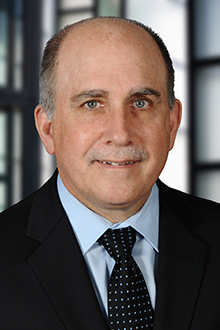Global Hawk Insurance Company v. Le
(Employee Exclusion in Commercial Truckers Policy Did Not Apply to Exclude Coverage of Truck Operators Bodily Injury Claim Based on Questions of Fact Relative to Status as an Independent Contractor)
In Global Hawk Ins. Co. v. Le, 225 Cal.App.4th 593 (April 14, 2014), the California First District Court of Appeal reversed the trial court’s entry of summary judgment in favor of Global Hawk Insurance Company (“Global Hawk”) based on an employee exclusion in the Global Hawk policy issued to named insured, V & H Transport (“V & H”), in connection with its tender of an underlying lawsuit filed by trucker, Jerry Le (“Le”), for personal injury sustained as a result of a one vehicle accident involving a truck owned by V & H. Global Hawk had denied V & H’s tender of the underlying Le lawsuit based on the employee exclusion in its policy. Global Hawk contended that Le qualified as an employee under the Global Hawk policy based on the statutory definition of employee found in the federally mandated MCS-90 endorsement included with policies issued to interstate motor carriers in compliance with regulations promulgated by the Federal Motor Carrier Safety Administration (“FMCSA”). The Global Hawk policy did not include an MCS-90 endorsement. However, Global Hawk argued that the regulations mandated by the FMCSA define an employee as any individual, other than an employer, who is employed by an employer and who in the course of his or her employment directly affects commercial motor vehicle safety. Such term includes a driver of a commercial motor vehicle (including an independent contractor while in the course of operating a commercial vehicle . . . 49 C. F. R. Section 390.5). Based on the definition of “employee” and the regulations, Global Hawk argued that Le constituted an employee within the scope of the employee exclusion in its policy and therefore, coverage was not afforded to V & H for the Le lawsuit.
The parties’ dispute revolved around whether Le qualified as an employee in connection with an agreement to haul goods from Los Angeles to New York and back, by truck, along with a co-driver. V & H advised Le that it was hiring him as an independent contractor and that he would receive a Form 1099 for his work performed in hauling the load across country. In that regard, V & H promised to pay Le $1,100 for the job. Subsequently, while the truck was being operated by the co-driver, it was involved in an accident, wherein Le sustained serious injuries.
After being told by V & H that he was not entitled to worker’s compensation benefits because he was an independent contractor, Le filed a lawsuit against V & H to recover damages for the injuries that he sustained as a result of the subject accident. V & H tendered the defense of the Le lawsuit to Global Hawk. In response, Global Hawk filed a complaint for declaratory relief contending that the employee exclusion in its policy barred coverage of the Le lawsuit. Thereafter, Global Hawk filed a motion for summary judgment based on the employee exclusion in its policy. The trial court agreed and entered summary judgment in Global Hawk’s favor. Essentially, the trial court focused on the definition of “employee” set forth in the 49 C.F.R. Section 390.5 referred to in the MCS 90 endorsement. The trial court entered summary judgment in favor of Global Hawk, notwithstanding that the Global Hawk policy did not include an MCS-90 endorsement referring to the statutory definition of “employee.”
In reversing the trial court’s decision, the Court of Appeal distinguished the United States Ninth Circuit Court of Appeals decision in Perry v. Harco National Ins. Co. (9th Cir. 1997), finding that the definition of “employee” in an MCS-90 endorsement excluded coverage of the action for bodily injury filed by an operator of a truck against the insured employer motor carrier. The Court of Appeal stated as follows:
Perry is distinguishable on three fundamental bases: there is no MCS-90 endorsement on the policy here; the truck was insured on the V & H policy; and Le was, at least according to what he was told by Vu, not eligible for worker’s compensation.
As mentioned above, one of Le’s “additional disputed facts” was that there was no MCS-90 endorsement on the policy. Golden Hawk did not even respond to this, admitting that there was express testimony on the point, including from Global Hawk Vice President Sahorta, who testified about the policy in issue here, authenticating it and its terms. His testimony confirmed that the policy had a total of 32 endorsements, not one of which was the MCS-90 endorsement. Sahorta was also asked if the policy contained an exclusion for “independent contractors.” He could find none. And the policy contained absolutely no reference to the regulations.
In sum, while Perry affirmed the district court’s ruling, it made clear that the sole reason it did so was that it was construing only the scope of the MCS-90 endorsement, as opposed to any additional coverage that could have been, but was not, provided in an underlying insurance policy. To again quote from Perry: “This appeal is limited to the construction of the endorsement in Harco’s policy insuring Sunset.” (Perry, supra, 129 F.3d at p. 1075, italics added.)
Perry does not stand for the proposition that the definition used in the FMCSA should supplant the definition set forth in an underlying policy of insurance, especially when, as here, it would displace an insurer’s obligation to pay a covered claim. Indeed, the law and regulations are to the contrary. (Carolina Cas. Ins. Co. v. Yeates, supra, 584 F.3d at pp. 882-883; C.F.R. §387.15 [“all terms, conditions, and limitations in the policy to which endorsement is attached shall remain in full force and effect as binding between the insured and the company”].)
